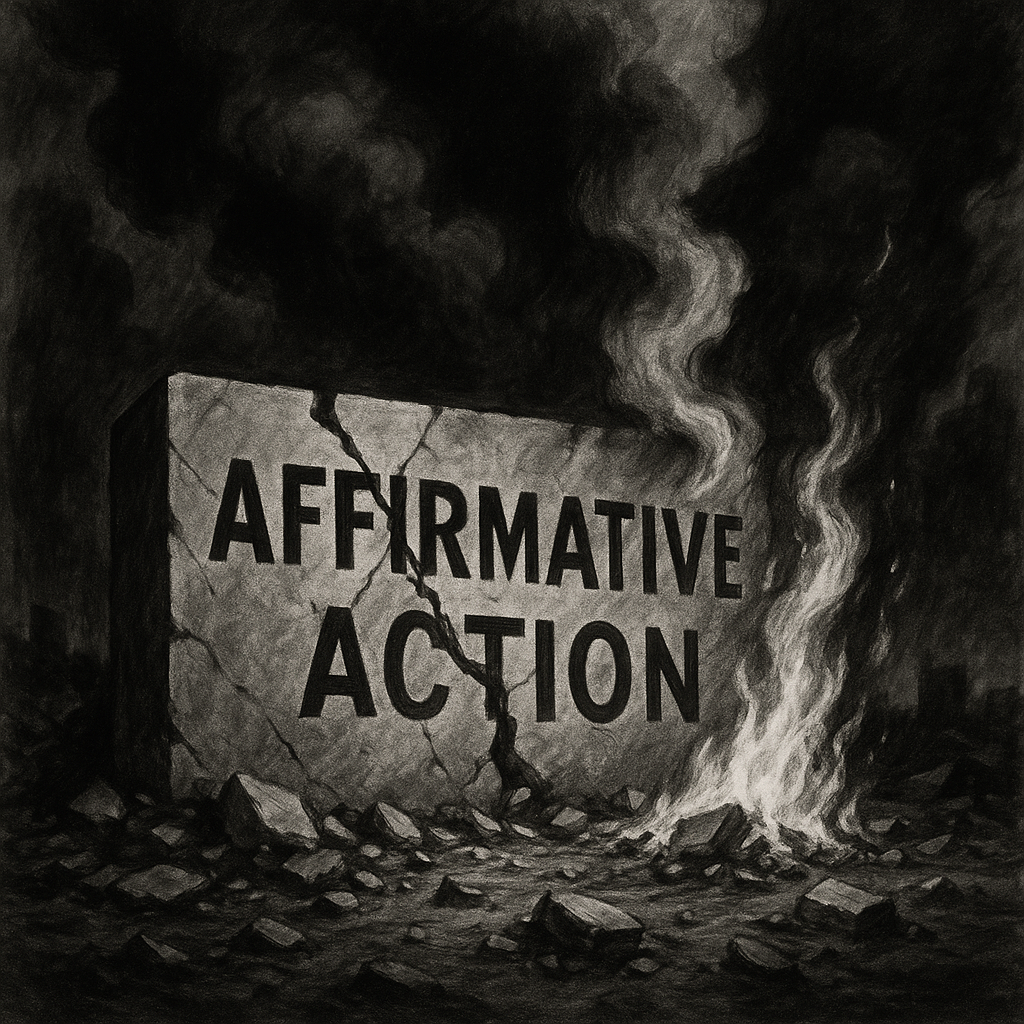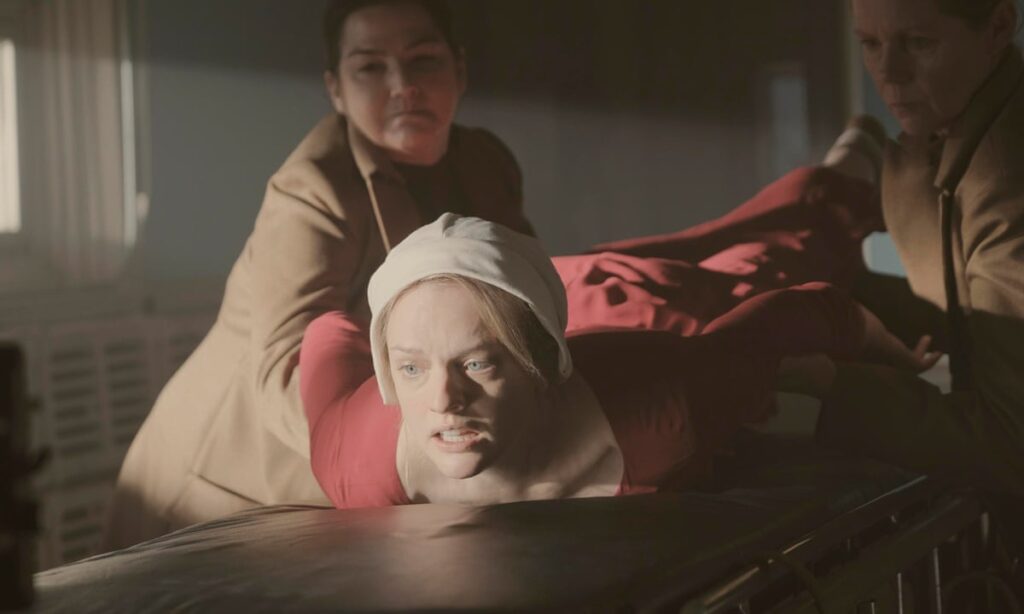Constitutonal Law cases

Constitutonal Law cases
Latest
Law
Epilogue: The Harvard Execution
By the time Harvard reached the Court, the patient was already on life support. Bakke had made sure of that. Decades of slow, methodical rulings had drained affirmative action of its lifeblood, replacing it with a fragile fiction called “diversity.”
Read More
Constitutonal Law cases
Latest
Supreme Shrugs: When the Highest Court Gets the Silent Treatment
Let’s talk Supreme Court. You know, those nine robe-wearing wizards who wave gavels and supposedly alter reality with their words? Well, here’s a reality check—Supreme Court decisions aren’t magical spells that suddenly make everyone in every state nod and say, “Oh, yeah, totally makes sense, we’ll just change immediately!” See, the Supreme Court doesn’t actually […]
Read More
Constitutonal Law cases
Latest
The Undoing: America’s Descent Into Dystopia
In the wake of Roe v. Wade’s fall, America teeters on the precipice of an unsettling new reality—one in which birth control itself stands vulnerable. If the foundational Caroline Products case is overturned, the consequences will ripple far beyond mere economic considerations. The ruling, infamous for its “footnote four,” defers economic and unenumerated rights—including privacy—to […]
Read More
Constitutonal Law cases
Latest
Reviews
Decoding NFIB vs Sebelius: Unraveling Commerce, Federal Powers, and Individual Liberties
This simple analysis scrutinizes NFIB vs Sebelius through three key questions. First, examining interstate commerce relevance, it unveils that the individual responsibility mandate isn’t tied to commerce among states but involves intrastate inactivity. Second, exploring Congress’s power, it traces back to McCulloch vs Maryland, revealing that overly broad federal power encroaches on individual and state […]
Read More
Constitutonal Law cases
Latest
Reviews
New York State Rifle & Pistol Association v. Bruen
In 2022, the New York State Rifle and Pistol Association vs. Bruen case emphasized that the right to possess and craft firearms also extends beyond one’s home, alongside the right to bear arms.
Read MoreConstitutonal Law cases
Corporate Law cases
Law
PHH Corporation v. Consumer Financial Protection Bureau
When it comes to the President’s executive power of removal, PHH Corporation v. Consumer Financial Protection Bureau (2018) said an independent agency director can’t be fired at will.
Read MoreConstitutonal Law cases
First Amendment cases
Law
Sherbert v. Verner
When it came to protecting the right to religous liberty, Sherbert v. Verner (1963) protected religion.
Read MoreConstitutonal Law cases
Law
United States v. E. C Knight
Since sugar refinery manufacturing wasn’t commerce, United States v. E. C Knight (1895) said Congress cannot intrude on state sovereignty with the Sherman Anti-Trust Act.
Read MoreConstitutonal Law cases
Law
Adkins v. Children’s Hospital
Because women and children were entering the workforce, Adkins v. Children’s Hospital (1923) said minimum wage legislation was unconstitutional.
Read MoreConstitutonal Law cases
Law
Bradwell v. Illinois
In regards to Fourteenth Amendment’s Privileges or Immunities Clause, Bradwell v. Illinois (1873) said women could not be lawyers.
Read More